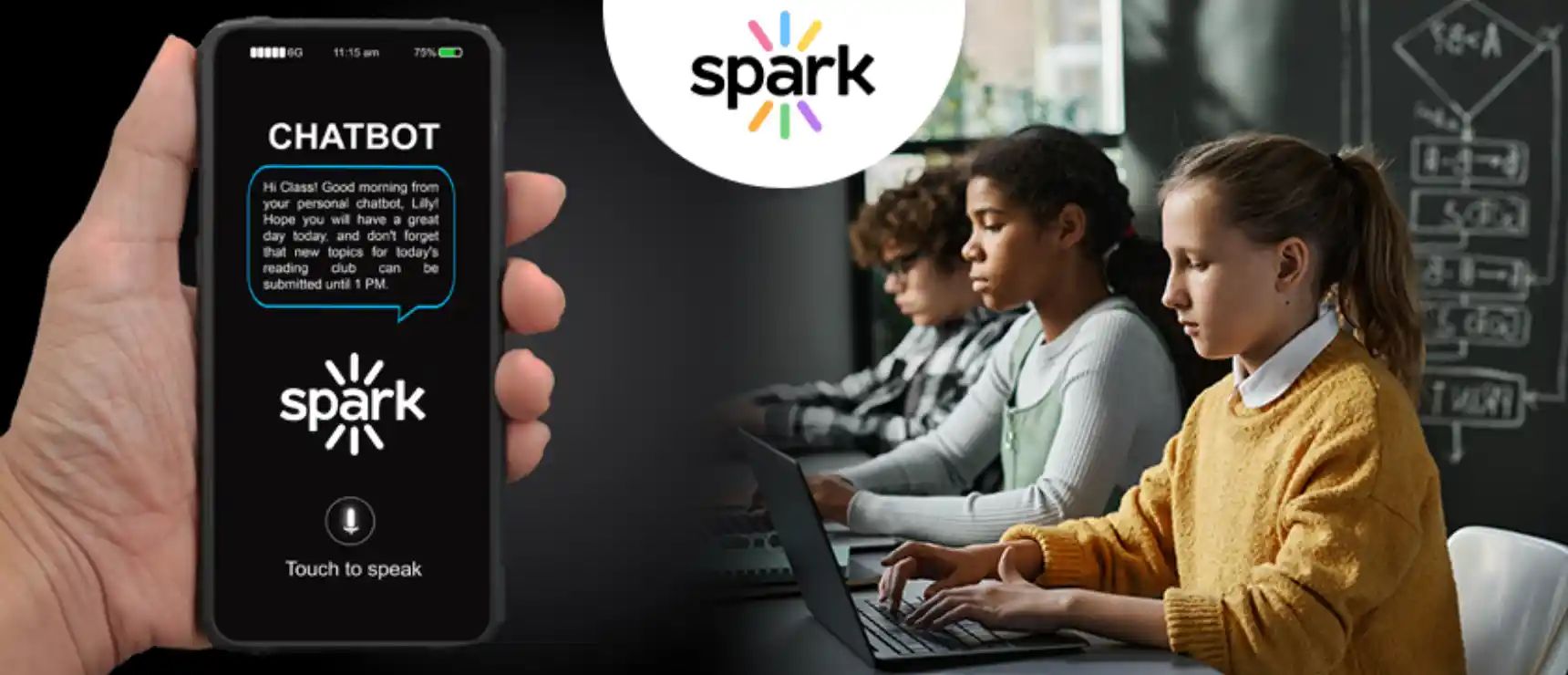With the rise of tools and technologies that are able to do or contribute to our day-to-day tasks, people fear the capability of machines to develop human-like skills. With the apparition of Artificial Intelligence and ChatGPT, an irreversible change took place in our lives and there is a chance that we didn’t even notice it at the time.
In November 2015 the Open AI company was funded and back then we didn’t even dream of the change they were going to bring to our digital world. Fast forward to 2023, ChatGPT has been active since autumn 2022 and we are still not sure how to deal with it.
Schools worldwide have had mixed feelings about the tool that can replace hard work and consciousness in students. While some love the initiative and innovative nature of AI, others have felt threatened by its use. So what does Spark think about the use of AI in Education? It’s enough to say that we are currently conducting a fundraising campaign where we are raising money in order to keep innovation in education alive. Spark’s objective in this round is to secure funding to support the ongoing product development, which is equipped to integrate AI capabilities through machine learning and intelligent automation.
So, shortly, we love it! We think of Artificial Intelligence as not a threat but an opportunity to revolutionise and smoothen the Educational experience of our students. Here are 3 reasons why Spark (or any school) could benefit from using AI:
- Automation – we all have logistical or repetitive tasks that we could do with our eyes closed, even if someone wakes us in the middle of the night. These are tasks that could be easily replaced by an AI. For example, drafting emails to parents with grade reports, taking attendance, or keeping track of students’ progress are all tasks that an AI could help with, thus freeing up time for more interactive activities or classes.
- Critical Thinking – students might get access to a pool of information, but there’s no additional SuperChatGPT to tell them what percentage of that information is correct. Critical thinking and analytical skills are things that students using ChatGPT might develop in trying to research information while keeping track of fake information and mistakes, as even ChatGPT is not perfect.
- Tailored processes – at Spark we focus greatly on providing our students with a tailored experience based on their interests and needs. It comes naturally to think that we’d also like to have platforms and teaching methods that support this way of teaching. With the use of AI, we could tailor any platform or tool to focus on personalising each experience based on the personal information and progress of each student.
What other ways of integrating AI into your teaching can you think of?
Even though this new tool might seem frightening, we need to look around and realise that information is easier to access day by day. If we fear ChatGPT so much, maybe we should focus more on teaching our younger generations how to think for themselves.
Nowadays we are battling an overflow of information and because it’s so easy to gain access to knowledge, it can become quite difficult to separate true facts from false ones. A new goal for educational institutions could be to teach young pupils what it means to be informed and how easily fake news can get around – just think of the countless images generated by DALL-E that were presumed to be true real-life photos at first.
At Spark, we will always encourage and support innovation and digitalization, and we are never sleeping on tools or technologies that could have an impact on the educational journey of our students.
New tools will emerge and digitalization will keep on happening, so we want to make sure that we teach our students to adapt to all these changes, and moreover, use them to their advantage. If anything, Open AI is here to stay, and we have a feeling that this is just the beginning.
Ready to join us in welcoming AI into the future of Education?
